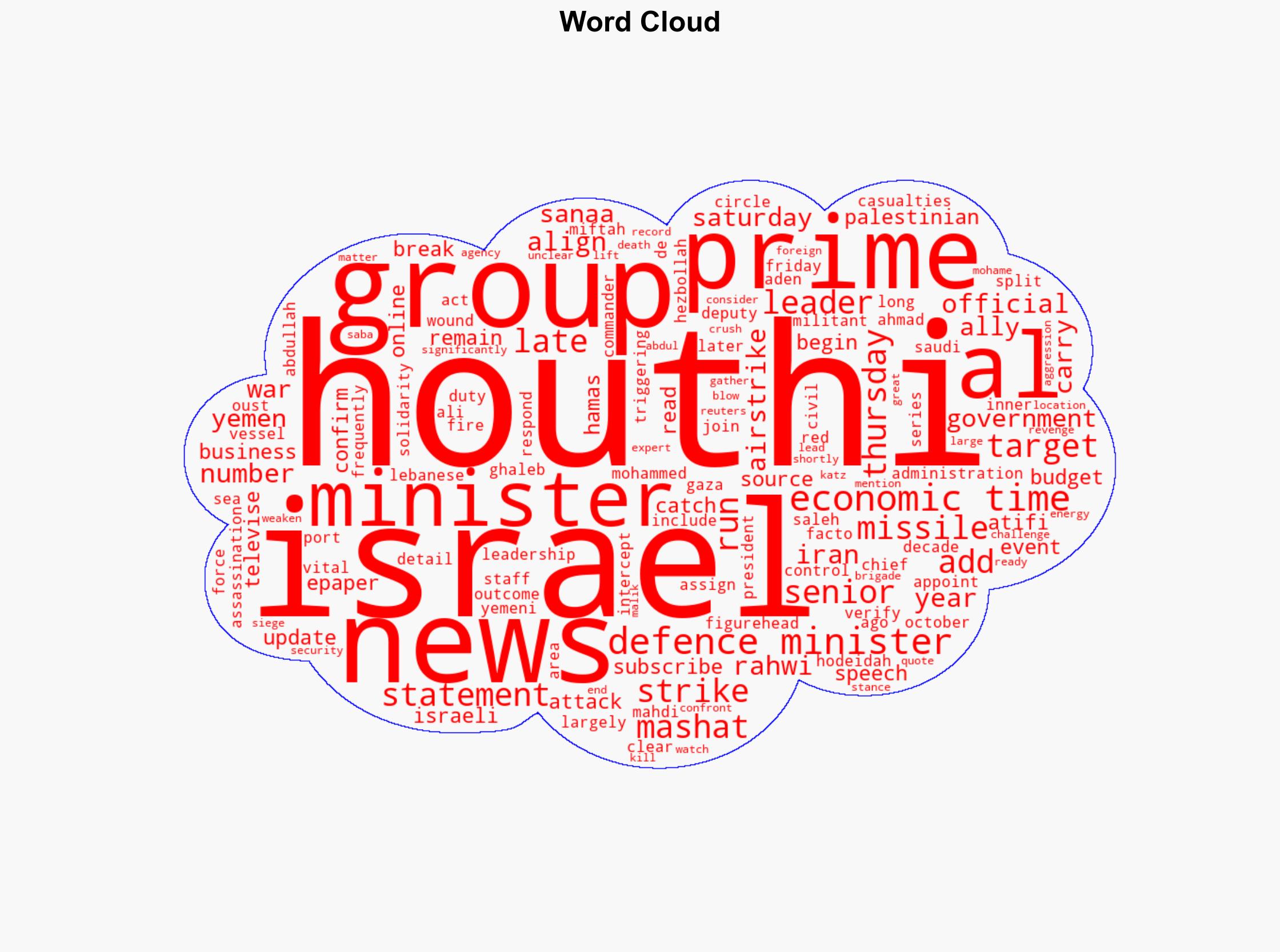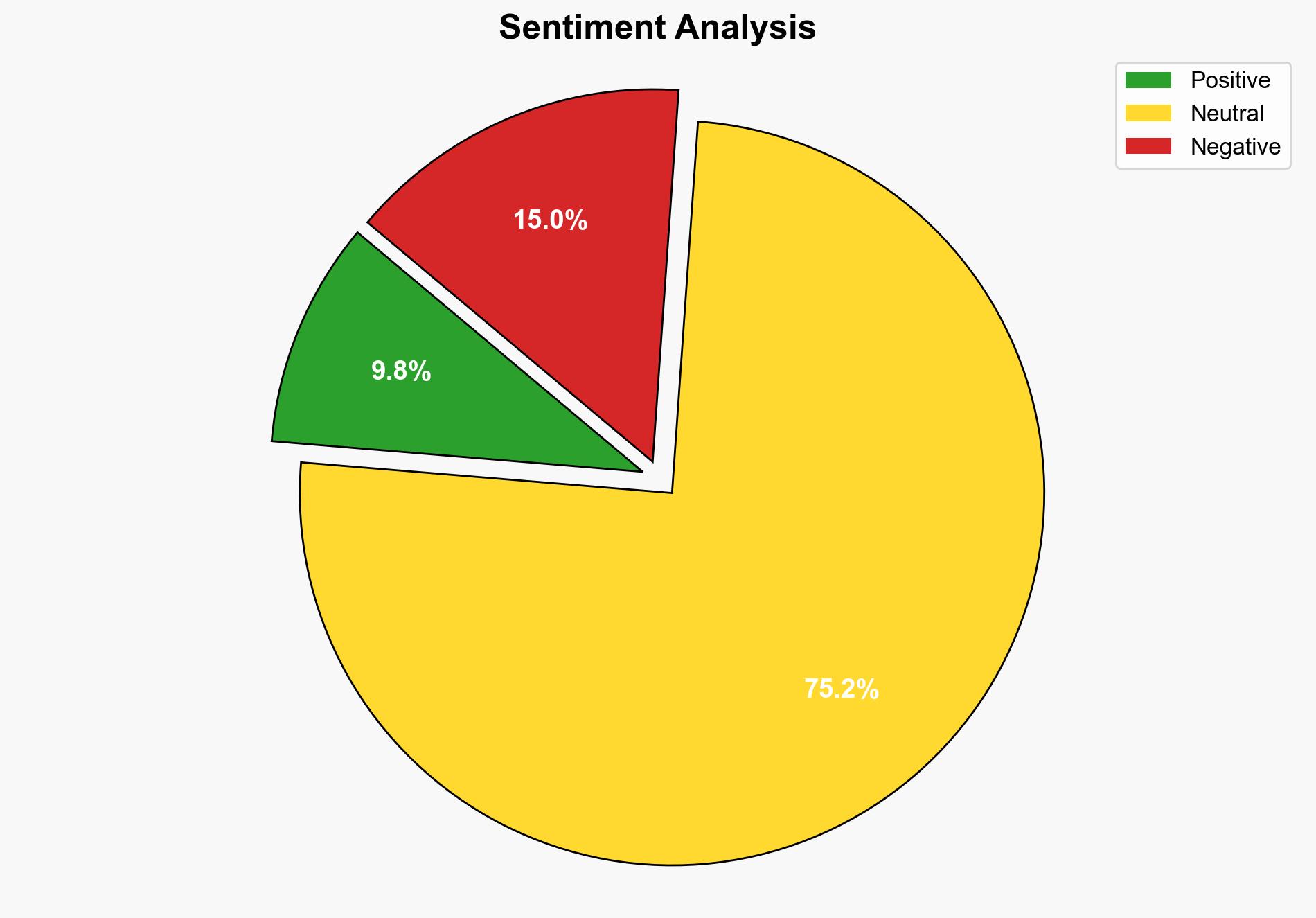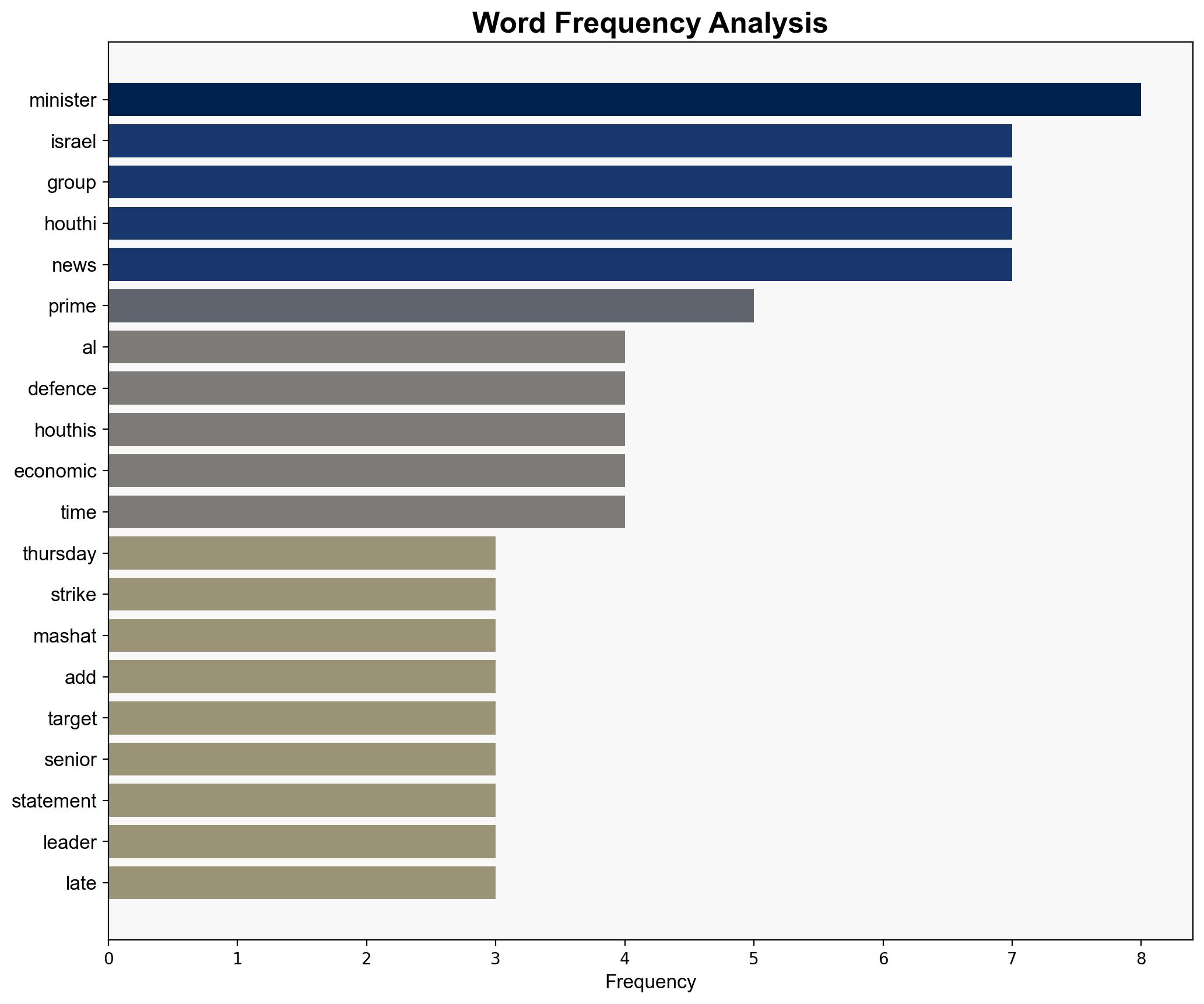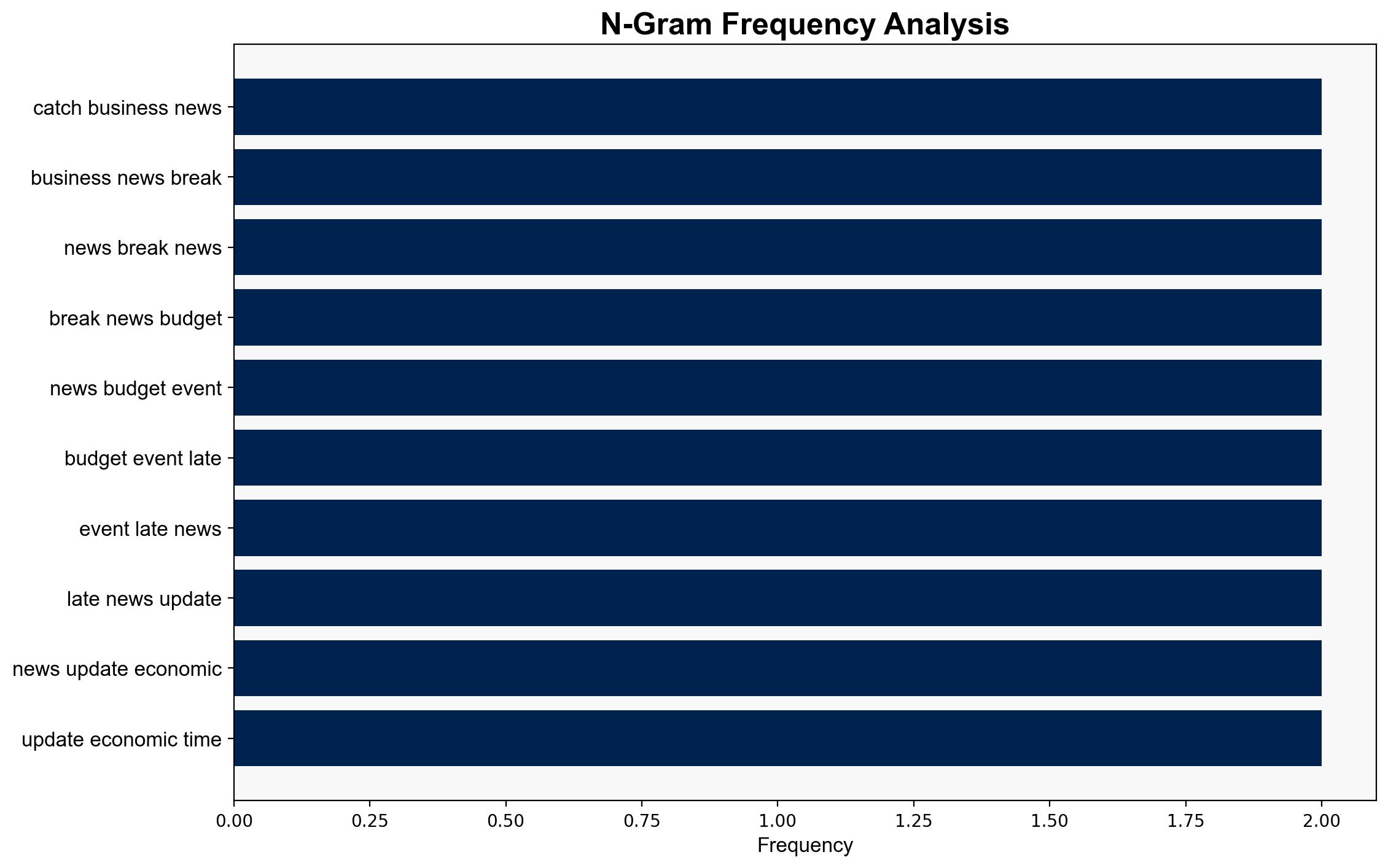Prime minister of Yemen’s Houthi-run government killed in Israeli strike – The Times of India
Published on: 2025-08-31
Intelligence Report: Prime minister of Yemen’s Houthi-run government killed in Israeli strike – The Times of India
1. BLUF (Bottom Line Up Front)
The most supported hypothesis is that the Israeli airstrike was a targeted operation against senior Houthi officials, potentially aimed at disrupting their leadership and deterring further aggression towards Israel. Confidence in this hypothesis is moderate due to the lack of direct confirmation from multiple independent sources. Recommended action includes monitoring for retaliatory actions by the Houthis and assessing the impact on regional stability.
2. Competing Hypotheses
1. **Hypothesis A**: The Israeli airstrike was a deliberate operation targeting senior Houthi officials to disrupt their command structure and deter further attacks on Israel.
2. **Hypothesis B**: The airstrike was a broader strategic move by Israel to weaken Iran-aligned groups in the region, with the death of the Houthi prime minister being collateral rather than a primary objective.
Using the Analysis of Competing Hypotheses (ACH) 2.0, Hypothesis A is better supported due to the specific targeting of a location where senior Houthi officials were gathered, as reported by Israeli security sources. Hypothesis B lacks specificity regarding the target and is less supported by the available intelligence.
3. Key Assumptions and Red Flags
– **Assumptions**: It is assumed that the Israeli intelligence accurately identified the gathering of senior Houthi officials. Another assumption is that the Houthis will respond aggressively to the strike.
– **Red Flags**: The lack of confirmation from independent sources regarding the strike’s intended target raises questions about the accuracy of the reported details. The absence of a clear statement from the Houthi leadership about the incident also suggests potential information control or strategic deception.
4. Implications and Strategic Risks
The strike could escalate tensions in the region, potentially leading to retaliatory attacks by the Houthis on Israeli or allied interests. This could further destabilize the Red Sea shipping lanes and impact global trade. Additionally, the incident may influence Iran’s strategic calculus in supporting proxy groups, potentially leading to increased regional hostilities.
5. Recommendations and Outlook
- Enhance intelligence collection on Houthi communications and movements to anticipate potential retaliatory actions.
- Strengthen diplomatic channels with regional allies to coordinate a response to potential escalations.
- Scenario Projections:
- **Best Case**: The strike deters further Houthi aggression without significant retaliation.
- **Worst Case**: The strike triggers a broader conflict involving multiple regional actors.
- **Most Likely**: Limited retaliatory actions by the Houthis, leading to temporary regional instability.
6. Key Individuals and Entities
– Mahdi al-Mashat
– Ahmad Ghaleb al-Rahwi
– Mohammed Miftah
– Abdul Malik al-Houthi
7. Thematic Tags
national security threats, regional stability, counter-terrorism, Middle East conflict





